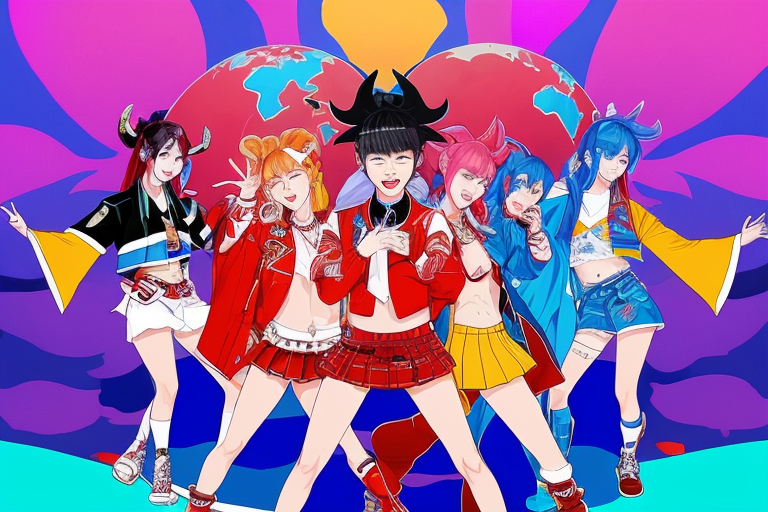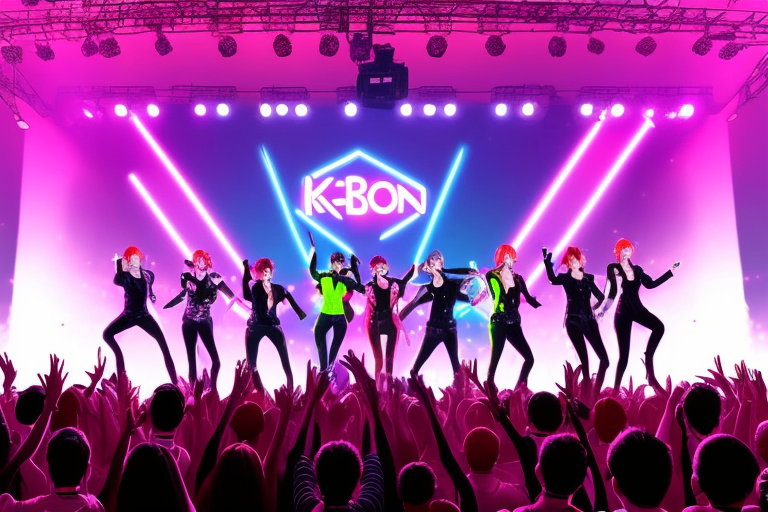The Rise of K-Pop in the Western Music Industry
Over the past decade, K-Pop has taken the world by storm. With its catchy beats, colorful music videos, and unique sound, K-Pop has become a global phenomenon with a massive following in the Western music industry. But what is K-Pop, and why has it become so popular? In this article, we will explore the cultural impact of K-Pop and its challenge to Western music industry norms.
K-Pop, short for Korean pop music, originated in South Korea in the 1990s. It is a genre of music that incorporates elements of pop, hip hop, R&B, and electronic dance music. K-Pop is known for its elaborate music videos, synchronized dance routines, and colorful fashion. It has a distinct sound that sets it apart from traditional Western pop music.
In recent years, K-Pop has gained immense popularity in the Western music industry. K-Pop groups like BTS, Blackpink, and Twice have topped the charts and sold out stadiums across the world. This rise in popularity has challenged the norms of the Western music industry, which has traditionally been dominated by English-language music.
In this article, we will explore the cultural impact of K-Pop and its challenge to Western music industry norms. We will also discuss K-Pop’s diverse representation of race, gender, and sexuality, and its role in promoting cultural exchange between Korea and other countries. Finally, we will examine K-Pop fandom culture and its massive online presence, and reflect on the future implications of K-Pop’s rise in the Western music industry.
K-Pop’s Challenge to Western Music Industry Norms
K-Pop has been making waves in the Western music industry for several years now, and it’s not hard to see why. With its unique blend of sound and aesthetics, K-Pop offers a refreshing departure from traditional Western pop music. The genre has challenged the norms of the Western music industry, paving the way for a new era of global music.
One of the most significant ways in which K-Pop challenges Western music industry norms is through its sound. K-Pop blends elements of various genres, including pop, hip-hop, R&B, and electronic music, to create a sound that is entirely its own. The music is often characterized by its upbeat tempo, catchy hooks, and intricate choreography, making it a feast for both the ears and the eyes.
In contrast, traditional Western pop music often follows a more formulaic approach, relying on tried-and-tested beats and melodies to create hits. K-Pop’s unique sound has challenged this approach, proving that there is a demand for something different in the Western music industry.
K-Pop’s influence on Western pop music is also worth noting. Many Western artists have started incorporating elements of K-Pop into their music, from using Korean lyrics to collaborating with K-Pop artists. This influence has helped to diversify the Western music industry, offering a fresh perspective on what pop music can be.
However, K-Pop’s challenge to Western music industry norms goes beyond just its sound. The genre’s aesthetics are also a significant departure from traditional Western pop music. K-Pop artists often sport bold and colorful outfits, elaborate hairstyles, and intricate makeup looks. This visual spectacle is a stark contrast to the more subdued, minimalist approach of traditional Western pop music.
K-Pop’s unique aesthetics have challenged traditional beauty standards, promoting a more inclusive and diverse approach to beauty. This representation is crucial, especially in the Western music industry, where beauty standards have historically been narrow and exclusionary.
K-Pop’s Impact on Cultural Exchange and Representation
K-Pop has been making waves in the music industry, not only for its unique sound and aesthetics but also for its representation of diversity. Unlike traditional Western pop music, K-Pop features artists of different races, genders, and sexualities, breaking down barriers and promoting cultural exchange.
One of the most significant impacts of K-Pop’s diverse representation is its global following. Fans from all over the world are drawn to K-Pop because they see themselves represented in the music and the artists. For example, Frankie, a young Korean-American artist, has gained a massive following in both Korea and the United States because of her unique blend of K-Pop and Western pop music.
K-Pop’s representation of diversity also promotes cultural exchange between Korea and other countries. Judges on popular Korean music shows, such as “Show Me the Money,” often feature international artists, such as Uvanni, who bring their unique perspectives and experiences to the show. This not only exposes Korean audiences to different cultures but also allows international artists to showcase their talents to a wider audience.
Moreover, K-Pop’s emphasis on representation has led to a shift in the music industry’s standards. Western pop music has historically been dominated by white, male artists, but K-Pop’s success has shown that diversity can be profitable and popular. As a result, more Western artists are incorporating elements of K-Pop into their music, leading to a more diverse and inclusive music industry.
However, it is important to note that K-Pop’s representation of diversity is not without its flaws. Some critics argue that K-Pop’s representation of Black artists, for example, is often fetishized and appropriative. Additionally, K-Pop’s representation of LGBTQ+ identities is often limited and stereotypical.
Despite these criticisms, K-Pop’s impact on cultural exchange and representation cannot be ignored. By breaking down barriers and promoting diversity, K-Pop has become a global phenomenon, with fans from all over the world embracing the music and the culture. As the music industry continues to evolve, K-Pop’s influence will undoubtedly play a significant role in shaping its future.
K-Pop Fandom Culture and Digital Presence
K-Pop fandoms are known for their intense dedication and loyalty to their favorite groups and idols. Fans often refer to themselves as “stans,” a term derived from the Eminem song “Stan” and used to describe an obsessive fan. K-Pop fandom culture is unique in its level of engagement and participation, with fans often organizing fan projects, creating fan art, and even crowdfunding advertisements in support of their favorite groups.
One of the key factors contributing to the growth of K-Pop fandom culture is the genre’s emphasis on fan engagement. Many K-Pop groups and idols actively interact with fans through social media platforms like Twitter, Instagram, and Weverse, a fan community app developed by K-Pop powerhouse Big Hit Entertainment. These interactions often take the form of live streams, Q&A sessions, and personal messages, creating a sense of intimacy and connection between fans and idols.
The digital presence of K-Pop fandoms is also significant. K-Pop fans are known for their use of social media to promote their favorite groups and idols, with hashtags like #BTSArmy and #BlackpinkInYourArea trending worldwide on a regular basis. K-Pop fandoms have also been known to organize mass streaming events on platforms like YouTube and Spotify to boost their favorite groups’ views and listens.
The impact of K-Pop fandom culture and digital presence on the genre’s global popularity cannot be overstated. K-Pop groups like BTS and Blackpink have broken numerous records on the Billboard charts and have amassed massive followings worldwide. This success is in large part due to the dedication and passion of K-Pop fandoms, who have helped to spread the genre’s music and message across the globe.
However, K-Pop fandom culture is not without its controversies. In recent years, there have been instances of toxic fan behavior, including cyberbullying and doxxing. These behaviors have been condemned by both K-Pop groups and fans alike, with many calling for a more positive and inclusive fandom culture.
Overall, K-Pop fandom culture and digital presence have played a significant role in the genre’s global success. The passion and dedication of K-Pop fans have helped to spread the genre’s music and message across the world, while social media has provided a platform for fans to connect and engage with their favorite idols. As K-Pop continues to grow in popularity, it will be interesting to see how fandom culture evolves and adapts to new challenges and opportunities.









